A Complete Guide to Garden Pods – Cost, Uses, Planning Permission, and More
A garden pod is a versatile and stylish way to create extra space in your garden. Whether you’re looking to set up a home office, gym, or relaxing second living room, garden pods offer a cost-effective alternative to extensions, with minimal disruption to your home. In this complete guide, we’ll answer all your questions about garden pods – from costs and planning permission to installation options – so you can decide if a garden pod from Warwick Buildings is right for you.
What Is a Garden Pod?
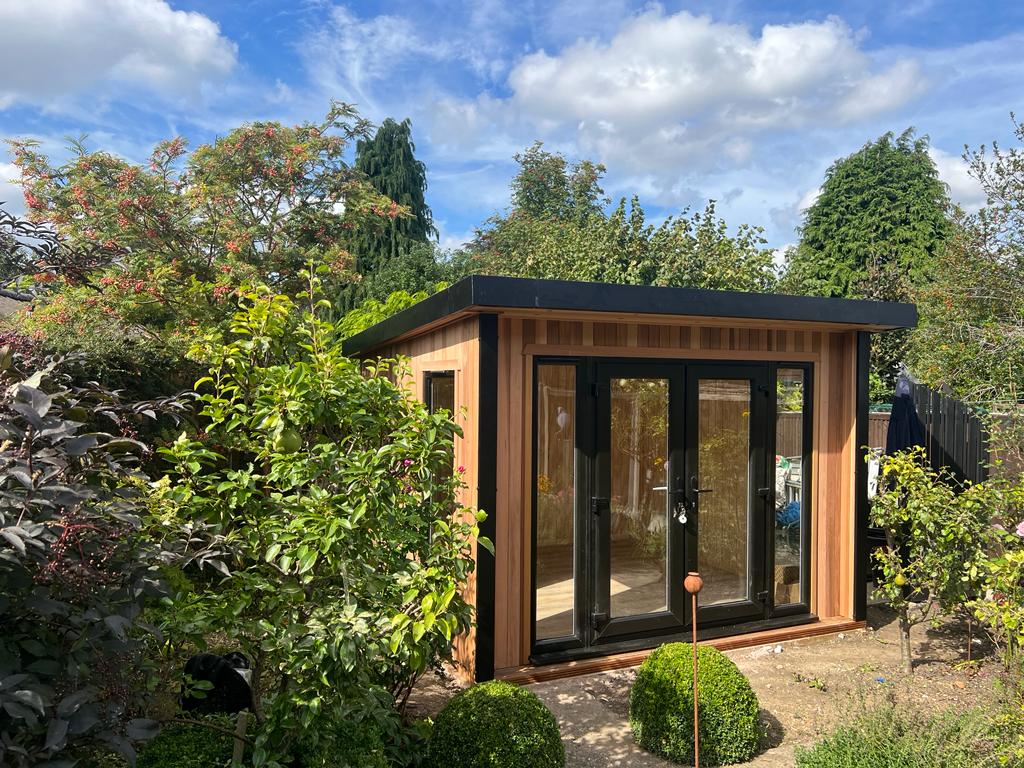 Adding functional space to your property doesn’t always require a traditional extension. A standalone garden building offers a compact, modern alternative, and unlike a basic shed, it’s designed for year-round comfort. These structures are fully insulated, highly customisable, and can be equipped with electrics, heating, and double glazing. It is this practicality and quality that make versatile UK garden rooms a popular choice for any season.
Adding functional space to your property doesn’t always require a traditional extension. A standalone garden building offers a compact, modern alternative, and unlike a basic shed, it’s designed for year-round comfort. These structures are fully insulated, highly customisable, and can be equipped with electrics, heating, and double glazing. It is this practicality and quality that make versatile UK garden rooms a popular choice for any season.
Garden pods are incredibly versatile – while they are popular as garden office pods for remote work, they’re also ideal as art studios, yoga retreats, playrooms, or cosy garden rooms for relaxation. With flexible designs, they can blend seamlessly into your garden, providing a dedicated outdoor space for any need.
4 Popular Uses for Garden Pods
1. A Garden Office Pod

As we mentioned above, one of the most popular uses is as a home office. With the rise of remote work, garden office pods provide a quiet, private workspace away from household distractions, allowing for better concentration and work-life balance. Equipped with insulation and electrics, these pods create a professional, comfortable environment that’s just steps from your home.
2. A Garden Gym Pod
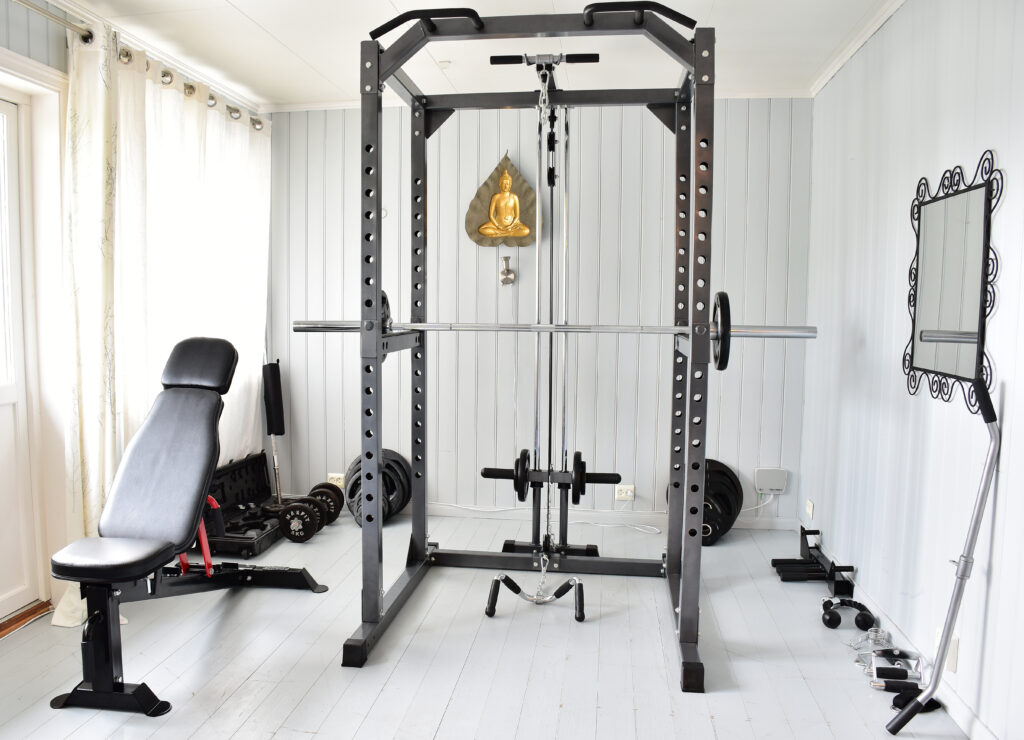
Garden pods are also ideal for home gyms. With a dedicated space for exercise, you can work out whenever you choose without needing to travel. These pods are customisable, so you can include extra height for tall equipment or reinforced floors for weights.
3. A Garden Studio Pod

For creative types, a garden pod can become an inspiring art or music studio. With abundant natural light and quiet, it’s a perfect setting for focusing on projects without interruptions.
4. A Garden Guest Pod

For those who frequently entertain guests, garden pods make excellent guest rooms. Fully insulated with optional heating and electrics, they’re suitable for overnight stays, adding a private, welcoming space for friends or family.
And once everyone has gone home, you can use your garden pod as a place to unwind with a good book, enjoy yoga, or simply relax in nature.
Do You Need Planning Permission for a Garden Pod?

In the UK, most garden pods fall under permitted development rights, meaning they do not require formal planning permission. However, there are specific guidelines to ensure compliance.
How to Qualify for Permitted Development
To qualify as permitted development, garden pods must be single-storey with an eaves height of 2.5 metres or less if positioned within two metres of a boundary. If placed further than two metres from the boundary, the pod’s overall height can be up to four metres for a pitched roof or three metres for a flat roof.
For most homeowners, these height restrictions mean a garden pod can be installed with minimal hassle. However, certain conditions may still require planning permission.
When Planning Permission May Be Required
If your property is in a designated area, such as a National Park, Area of Outstanding Natural Beauty (AONB), or Conservation Area, or if your home is a listed building, additional permissions may be necessary. In these cases, the structure may need approval to ensure it aligns with local regulations for maintaining the area’s character.
How Do You Build a Garden Pod – Installation and Setup
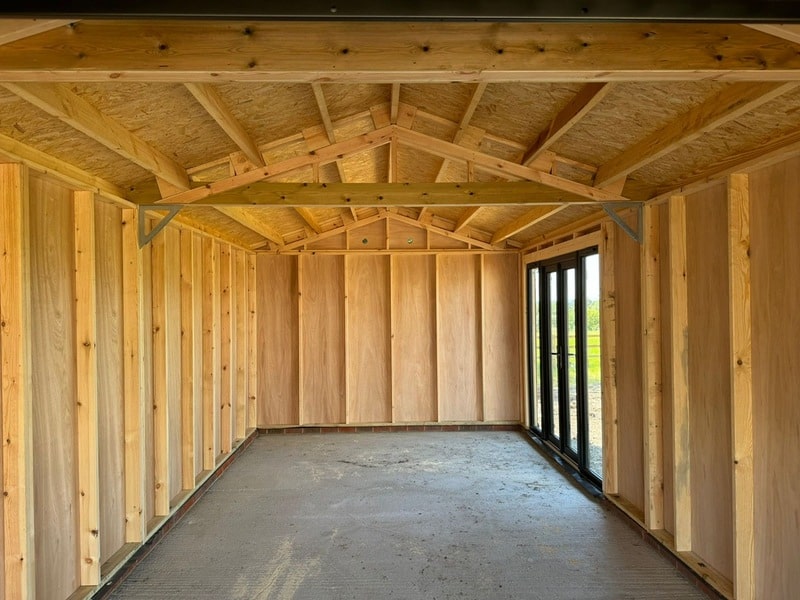
Building a garden pod with Warwick Buildings is a straightforward process that ensures your new outdoor space is set up to last.
The process begins with the groundwork, which is essential for creating a stable foundation. This typically involves preparing a level concrete or ground-screw base to support the pod, providing a solid platform that will increase the building’s longevity.
Once the base is ready, the Warwick Buildings installation team arrives with pre-fabricated sections of the pod, allowing for quick assembly that can often be completed within a day.
Some Adaptable Considerations
Our garden pods are highly customisable. From cladding options like classic shiplap or premium cedar to energy-efficient insulation that makes the pod usable year-round, you have flexibility in both appearance and functionality.
You can choose between various window styles for optimal light, while roof and wall insulation options keep the pod comfortable in any season, whether it’s used as a garden office pod, home studio, or guest space. Plus, electrics can be integrated during the build, simplifying the setup of lighting, heating, or power outlets.
Can You Build a Garden Pod Yourself?
While some may consider a DIY approach, professional installation ensures every detail is handled expertly, from structural alignment to finishing touches. The building and installation service allows you to relax, knowing your insulated garden pod is built to professional standards, saving you time and ensuring a long-lasting, quality build.
How Much Are Garden Pods?

The cost of a garden pod can vary significantly, depending on size, materials, and optional features like insulation and electrics.
At Warwick Buildings, garden pods start from around £7,500 for a Micro Pod, making it a great option for those with a budget of £10,000 or less. Compact yet fully insulated, this option is ideal for one person and provides year-round comfort, making it perfect for use as a small garden office pod or creative workspace.
For those with a £15,000 budget, the Box Office and Garden Office Pod models offer excellent value and additional flexibility. The Box Office, a popular choice for home offices, is a cost-effective standard design available in various sizes. Meanwhile, the Garden Pod offers customisation options, such as different doors and windows, which allows buyers to tailor it precisely to their preferences.
For around £15,000, either model provides enough room for a spacious, comfortable office with the potential to add furniture and essential office equipment, creating a professional workspace just steps from home.
Garden Pods Vs Traditional Extensions – Which Is a Cost-Effective Choice?
Compared to traditional extensions, garden pods are highly cost-effective. They require less construction time, cause very minimal disruption, and typically avoid the need for planning permission, especially when designed to fall under permitted development rights.
Garden pods can also add value to your property by providing an attractive, functional outdoor space. With a range of prices and customisation options available, our garden pods are a prime example – catering to various budgets and making it much easier to find an option that suits you better than a costly extension.
What are the Benefits of an Insulated Garden Pod?
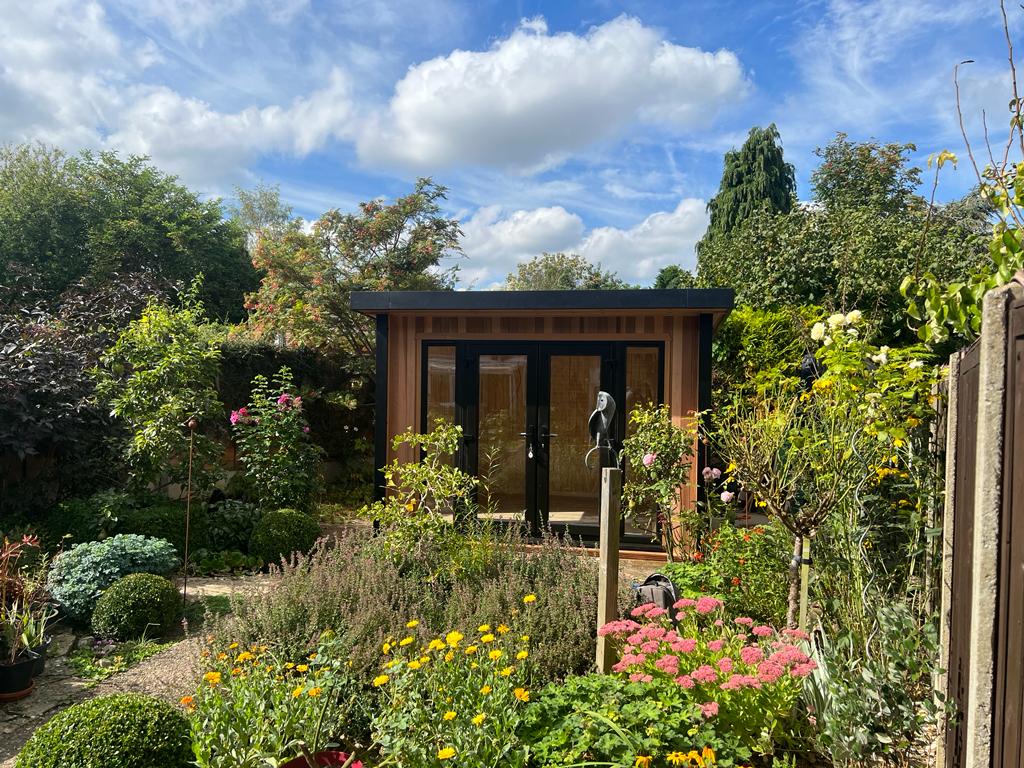
Insulation makes a significant difference in maintaining a stable indoor temperature, keeping the pod warm in winter and cool in summer. This added layer makes the space more comfortable and helps reduce energy usage, as it minimises the need for additional heating or cooling.
For those using their garden pod as a home office or creative studio, insulation is especially beneficial. It creates a quieter space by reducing noise from the outside, making it easier to focus without disturbances from the garden or surrounding areas.
Do Garden Pods Require Much Maintenance?
As with most garden buildings, periodic care will help your pod withstand the elements and maintain its appeal over time. Our pods are crafted with high-quality, weather-resistant materials, but applying a wood treatment or stain every few years is recommended to preserve the timber’s natural look and provide additional protection against moisture.
Weatherproofing is essential for outdoor spaces, especially in the UK, so remember to regularly check seals on windows and doors. Clearing debris from gutters and checking for any signs of wear or weathering will also help your pod stay in top shape with minimal effort.
Why Choose a Garden Pod from Warwick Buildings?
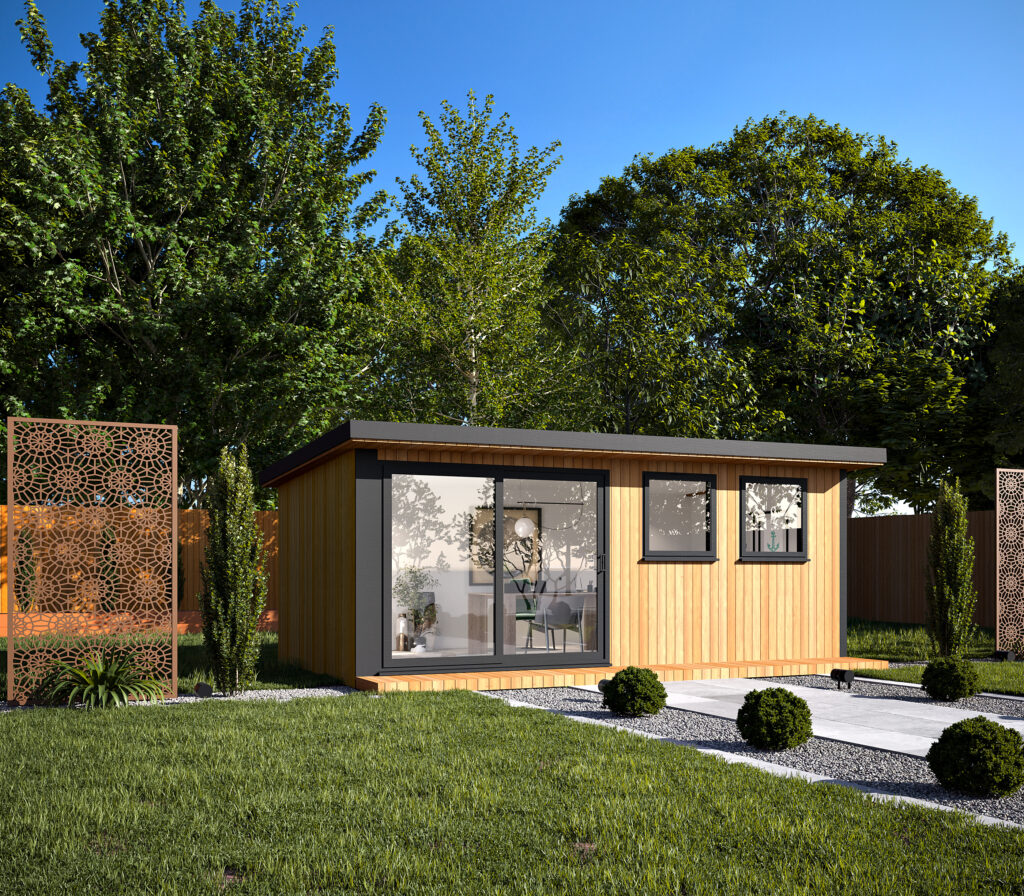
We offer a range of options, from micro pods for compact spaces to larger, custom pods – making it easy to find the perfect solution for your unique requirements. With over 35 years of experience in the industry, we have built a reputation for delivering garden buildings that combine durable materials, thoughtful design, and superior craftsmanship. We also have a custom online builder, which allows you to put together your own garden pod and a quote to suit your budget. Why not see what you can design today?
Frequently Asked Questions About Our Range
Can you add electricity to a garden pod?
Yes, we offer a range of electrical options for garden pods, including integrated lighting, power outlets, and provisions for heating or air conditioning. First-fix wiring is included in many models, allowing for a seamless setup. After installation, a qualified electrician can complete the final connections.
What sizes are available for garden pods?
Garden pods come in a variety of sizes to suit different outdoor spaces and purposes. We offer compact options like the Micro Pod, perfect for smaller gardens or single workstations, as well as larger models like the Box Office, which provide ample room for multiple desks or a more spacious setup.
How long does installation take?
Most garden pod installations can be completed in a single day, provided the groundwork is ready. The prefabricated sections of Warwick pods make for a swift assembly, minimising disruption. If additional custom features are included, such as decking or specific cladding, installation time may vary slightly, but our team aims to complete all setups efficiently.
What customisation options are available?
We offer a variety of customisation options for our garden pods. You can choose from different cladding materials like shiplap or cedar, adjust window and door placements, and add features like extra lighting or additional insulation.
